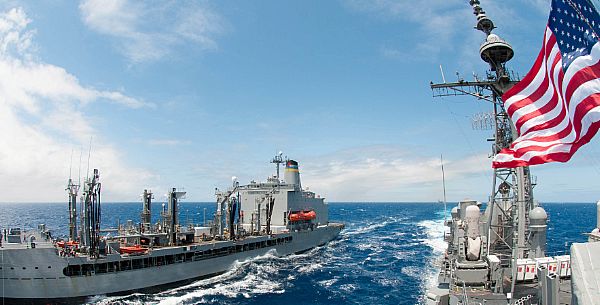
A Dearth in Seafarers Could Impact National Security
“We live in a global society which is supported by a global economy – and that economy simply could not function if it were not for ships and the shipping industry.”
Background:
The shipping industry is the backbone of the world’s economic system, making up more than 90 percent of global trade. “Without shipping, intercontinental trade, the bulk transport of raw materials and the import/export of affordable food and manufactured goods would simply not be possible.”
This industry is vital to maintain and progress our globalized, interconnected world, but is also one of the most dangerous industries. Massive ships and tankers sail regularly through extreme climates, unpredictable oceans and weather, hostile regions, and narrow canals. However, advanced technology has increased safety, efficiency, and speed of overseas trade.
In 2010, 8.4 billion tons of goods were loaded aboard ships. This number has significantly increased over the past few decades due to advanced industrialization, liberalization of economies, free trade agreements, and the growing demand for consumer products. According to Dr. Martin Stopford, managing director of Clarkson Research Services LTD, by 2060 the 8 billion tons of cargo transported by sea will grow to 23 billion tons. If this trend continues, there will be an increase in demand for seafaring labor, which currently has a shortage in supply. A lack in highly skilled workers who can operate the increasingly complex ships can have serious implications for the global economy as well as raise important national security concerns.
Supply & Demand:
According to the BIMCO/ISF Manpower Update, a 2010 study on worldwide demand and supply of seafarers, there is a shortage of officers who can operate specific grades and ship types such as tankers and offshore support vessels. The worldwide supply of seafarers in 2010 was estimated to be 624,000 officers and 747,000 ratings. The worldwide demand estimate for seafarers in the same year was 637,000 officers and 747,000 ratings. In other words, there is a 2 percent shortage of officers, currently not a serious aggregate problem but one that can have serious implications for the future.
A global shortage of seafarers, senior officer positions in particular, however modest, threatens the international shipping industry which is the “lifeblood of world trade.” Not having the experienced leadership aboard ships and tankers puts the safety of the crew at risk, increases the vulnerability of the goods being transported, leads to a greater risk of accidents occurring in port and at sea, and overall weakens the confidence in the worldwide shipping industry. In effect, this shortage has the potential to impact the global economy, which in turn can hinder America’s ability to maintain standard economic practices, thus leaving our national security vulnerable.
Problem Solved?
Fortunately, the International Maritime Organization in association with companies such as BIMCO, ICS/ISF, INTERCARGO an INTERTANKO, as well as the International Transport Workers Federation, are aware of this problem and are actively seeking to fix it. The “Go to sea!” initiative was developed in order to promote industry and governments’ ability to mount their own campaigns to improve seafarer recruitment. To protect the future of the shipping industry, leaders around the world must help encourage younger generations to see seafaring as a viable career choice so that we may maintain the backbone of our global economic system with competent and efficient seafarers.
One example of how this problem is being solved comes from an unexpected country that lacks a coastline. Ethiopia, a landlocked nation, has recently opened the Ethiopian Maritime Training Institute to recruit and train highly qualified marine engineers and electrical officers for the international shipping industry. Their goal is to graduate 1,000 cadets annually, which will make it the biggest marine training school in the world.
This is just one example of how developing countries, increasingly important players in the maritime industry, are taking steps to address issues that impact our globalized world and improve overall economic performance. The United States should do its part to support training institutions such as this so that we maintain the integrity of the worldwide economy and protect our national security interests.






[…] A Dearth in Seafarers Could Impact National Security […]